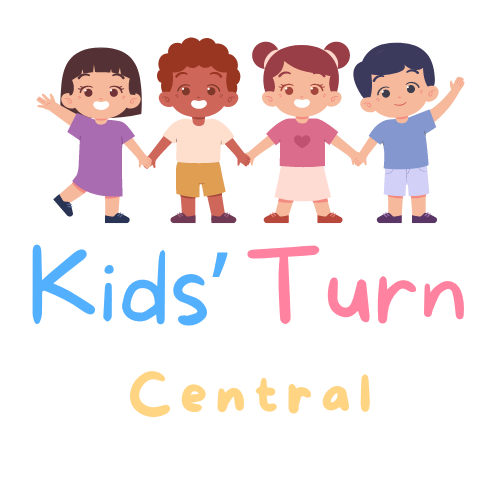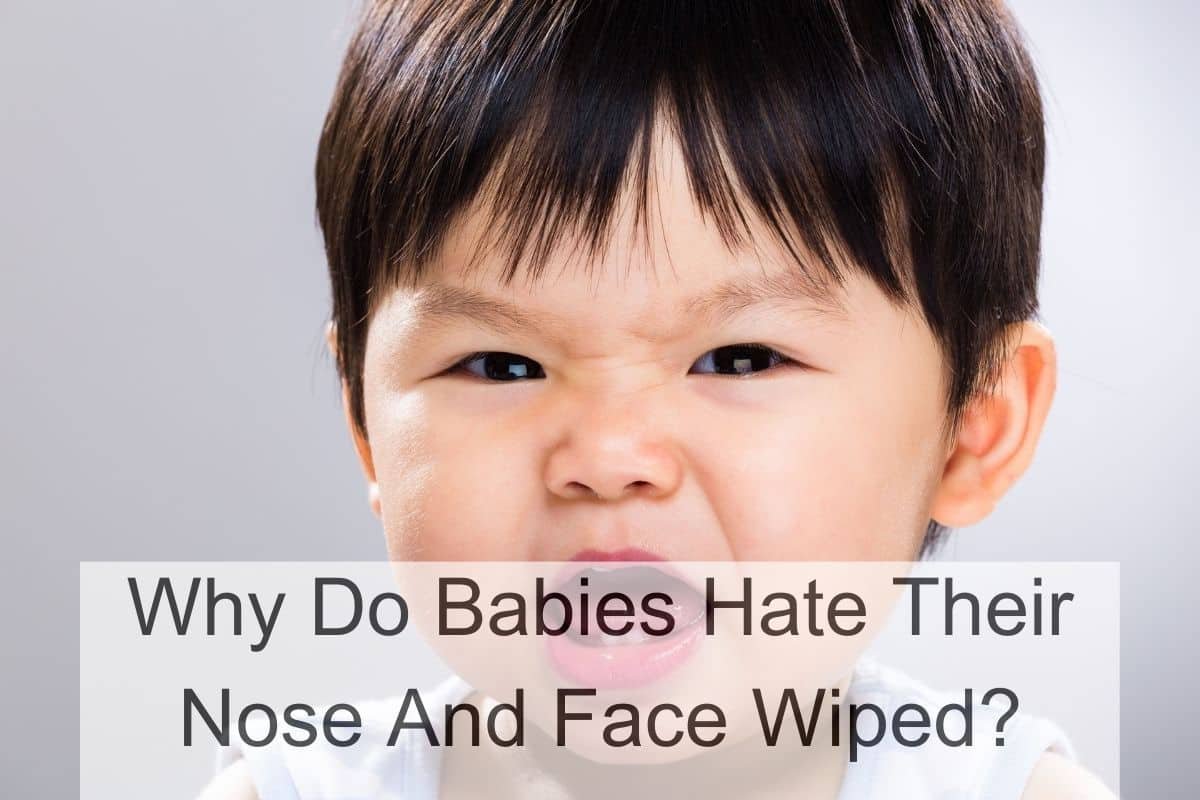As a new parent, I’ve quickly learned that wiping a baby’s nose and face can be a challenging task. Despite my best efforts to make it a quick and gentle process, my little one often squirms and cries when I try to clean their face. I found myself wondering, “Why do babies hate having their nose and face wiped?”

After doing some research, I discovered that there are a few reasons why babies may dislike having their face wiped. For one, babies have sensitive skin and may find the sensation of a wet wipe or cloth uncomfortable. Additionally, babies have an innate aversion to having their airways covered, which can make them feel uneasy when their nose and mouth are wiped at the same time.
It’s also worth noting that wiping a baby’s face can be a startling experience for them, especially if they are not used to it. Babies thrive on routine and may become upset when their daily routine is disrupted. So, while wiping their face may seem like a simple task to us, it can be a big deal to a little one.
Understanding Infant Sensory Development

As a developmental psychologist, I have studied how infants develop and learn. One important aspect of infant development is sensory development. Infants use their senses to explore and learn about the world around them. Here are two important aspects of infant sensory development related to why babies hate having their nose and face wiped.
Sensory Overload and Infants
Infants are born with a limited capacity to process sensory information. Too much stimulation can overwhelm their nervous system and lead to a state of sensory overload. When infants experience sensory overload, they may become fussy, cry, or even shut down. This can make it difficult for parents to wipe their baby’s nose and face without causing distress.
Facial Sensitivity in Babies
Facial sensitivity is another important aspect of infant sensory development. Infants have highly sensitive skin on their face, especially around their mouth and nose. This sensitivity can make it uncomfortable or even painful for infants when their face is wiped. It is important for parents to use gentle and soft materials when wiping their baby’s face to avoid causing discomfort.
The Dislike of Face Wiping

As a new parent, I was surprised to find that my baby would squirm and fuss whenever I tried to wipe their face. After doing some research, I learned that this is a common issue among babies. There are several reasons why babies dislike having their faces wiped.
The Surprise Factor
One reason why babies may dislike having their faces wiped is due to the surprise factor. Babies are still learning about the world around them and sudden movements or sensations can startle them. When a parent comes at them with a wipe or cloth, it can be unexpected and cause them to feel uncomfortable.
Discomfort and Irritation
Another reason why babies may dislike having their faces wiped is due to discomfort and irritation. Wipes and cloths can be rough on delicate baby skin, especially if they are used too frequently or with too much pressure. This can cause redness, irritation, and discomfort, making the baby less likely to want their face wiped in the future.
To make face wiping more comfortable for your baby, try using a soft, gentle cloth or wipe. Start by wiping around the edges of the face and work your way inward, being careful to avoid the eyes and nose. If your baby still seems uncomfortable, try distracting them with a toy or singing a song to keep them calm. With time and patience, you can help your baby become more comfortable with face wiping.
Parental Techniques for Easier Cleaning

As a parent, cleaning your baby’s face can be a challenging task. However, there are some techniques that can make the process easier and less stressful for both you and your baby. Here are some gentle approaches, distraction methods, consistency, and routine that can help.
Gentle Approaches
When cleaning your baby’s face, it’s important to use gentle approaches. You can use a cotton ball or a washcloth rinsed in warm water to clean your baby’s face. Start at the corners of their eyes by their nose and wipe outward in gentle motions. Then move on to the rest of the face giving special care to under the nose and around the mouth. Never insert anything into their noses.
Distraction Methods
Distraction methods can be an effective way to make cleaning your baby’s face easier. You can try singing a song, playing a game, or using a toy to distract your baby while you clean their face. You can also use a mirror to show your baby their face as you clean it. This can be a great way to engage your baby and make the process less stressful.
Consistency and Routine
Consistency and routine are essential when it comes to cleaning your baby’s face. Make it a part of your daily routine so that your baby gets used to it. You can clean your baby’s face after every meal or before bedtime. This will help your baby to expect it and make the process less stressful.
Psychological Aspects of Face Wiping

As a parent, I have often wondered why my baby hates getting their nose and face wiped. Through research and observations, I have learned that there are several psychological aspects of face wiping that can contribute to a baby’s dislike of the activity.
Trust and Bonding
Babies rely on their caregivers to meet their needs, including keeping them clean and comfortable. When a caregiver approaches a baby with a cloth or wipe, the baby may feel vulnerable and unsure of what is happening. This can lead to a breakdown in trust and bonding between the baby and caregiver.
To help build trust and strengthen the bond, it is important to approach face wiping with a gentle and reassuring touch. Using a soft cloth or wipe and speaking in a soothing voice can help the baby feel more secure and comfortable during the activity.
Autonomy and Control
Babies are also developing a sense of autonomy and control over their bodies and environment. When a caregiver wipes a baby’s face, it can feel like an invasion of their personal space and a loss of control. This can lead to resistance and frustration on the part of the baby.
To help promote a sense of autonomy and control, it is important to involve the baby in the face wiping process as much as possible. This can include allowing the baby to hold the cloth or wipe, or giving them a choice of which cloth or wipe to use. These small actions can help the baby feel more in control and less resistant to face wiping.
Health and Hygiene
As a parent, I understand how important it is to keep your baby clean and healthy. One of the most common challenges is wiping their nose and face. However, it is crucial to ensure that your baby’s face is clean to prevent the spread of germs and infections.
Importance of Face Cleaning
Cleaning your baby’s face is an essential part of their daily hygiene routine. It helps to remove dirt, sweat, and bacteria that can cause skin irritation and infections. Wiping your baby’s face also helps to remove any food particles that may be stuck on their skin, preventing rashes and other skin conditions.
It is essential to clean your baby’s face after every mealtime and before bedtime. Use a soft washcloth or baby wipe to gently clean their face, paying special attention to the area around their nose and mouth. Be gentle and avoid rubbing too hard, as this can irritate their delicate skin.
Dealing with Common Colds and Allergies
Babies are susceptible to colds and allergies, which can make it challenging to clean their face. When your baby has a stuffy nose, they may resist having their face wiped. In such cases, you can use saline drops to help clear their nasal passages before wiping their face.
It is also crucial to use a clean washcloth or baby wipe every time you clean your baby’s face. This helps to prevent the spread of germs and bacteria that can cause infections. Always wash your hands before and after cleaning your baby’s face to maintain good hygiene.

